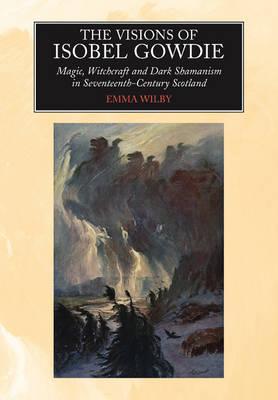The Visions of Isobel Gowdie – Magic, Witchcraft and Dark Shamanism in Seventeenth-Century Scotland: Emma Wilby.
Sussex Academic Press, 2010, 616 p., illustrated,
ISBN 9781845191801 Review – by Joyce Froome
http://www.sussex-academic.com/sa/titles/history/wilbygowdie.htm
See also: http://www.youtube.com/watch?v=BGw-Vx1jWiY
and http://pelicanist.blogspot.com/2010/06/visions-of-isobel-gowdie.html
Emma Wilby’s first book, Cunning Folk and Familiar Spirits, took a dramatic new approach to the study of British witch-trial records. It showed that there was fascinating information about genuine magical practices locked in the grim pamphlets and confessions. She has now used the extraordinary case of the Scottish witch Isobel Gowdie to take her theories much further, in a book that combines a wealth of detailed research with some remarkably bold insights.
It begins with some revealing material about Isobel’s prosecutors, who were not single-minded fanatics but troubled men with financial problems and complicated sex lives. But when Emma Wilby turns to Isobel herself, she plunges us into challenging territory. She argues compellingly that Isobel was a shaman in the strictest sense of the word – someone who entered trance states to communicate with the spirit world, and experienced visions that involved joining a company of fairies who were essentially a pagan goddess and her followers.
Unfortunately goddesses and fairies are not always nice to humans, and Emma Wilby then takes an even more controversial step, suggesting that when the fairies turned nasty Isobel was their accomplice, striking down her neighbours with magical arrows forged in Elfland.
At times Emma Wilby perhaps has too much confidence in the “scrupulousness” of the officials and interrogators responsible for Isobel’s confessions, and takes too little account of the centuries-long campaign by the religious authorities to demonise magic. Even so, it’s a long time since I found a book so enthralling and provocative. The idea that some magical practitioners regarded themselves as “honorary fairies” or even servants of a sinister “fate goddess” is exciting and seductive. It adds another element to the fascinating mystery that is magic at the time of the witch-hunts, and this book is unquestionably brilliant, and extremely important.

